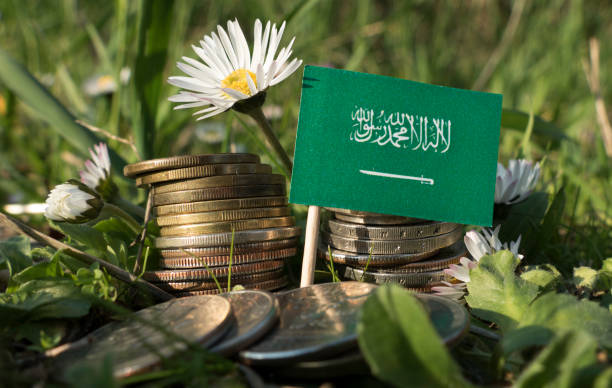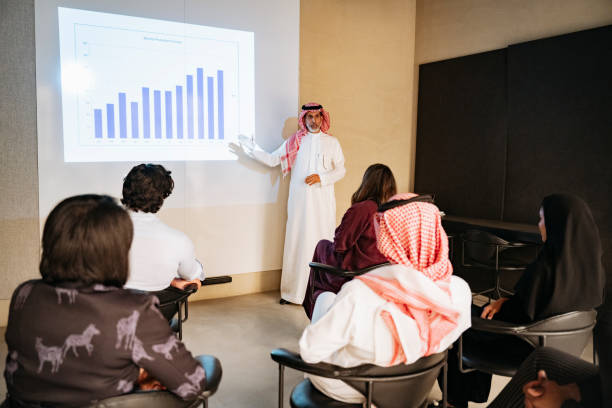Advertisements
Unveiling Islamic University of Madinah Scholarships
The Islamic University of Madinah (IU) in Saudi Arabia offers prestigious scholarships for international students seeking to delve into Islamic studies or foundational sciences. This comprehensive guide explores everything you need to know about securing an Islamic University scholarship, from program details to application strategies and life as a scholar in Madinah.
Unveiling the Islamic University of Madinah
Established in 1961, the Islamic University of Madinah is a premier institution dedicated to Islamic scholarship and education. Located in the holy city of Madinah, the university offers a unique learning environment steeped in Islamic history and tradition.
Academic Programs:
IU offers undergraduate and postgraduate programs in various Islamic disciplines, including:
•Quran and Islamic Studies:
Programs delve into the Quranic
text, Islamic jurisprudence,
Islamic history, and tafsir
(interpretation).
•Arabic Language: Programs focus
on mastering Arabic language
skills for deeper understanding
of Islamic texts.
•Hadith Studies: Programs delve
into the science of Hadith
(sayings and traditions of
Prophet Muhammad) and its role
in Islamic jurisprudence.
•Sharia (Islamic Law): Programs
explore Islamic legal principles
and their application in various
aspects of life.
• Islamic Dawah (Propagation):
Programs equip students with the
knowledge and skills to share
Islamic teachings effectively.
•Foundational Sciences: Programs
focus on subjects like Arabic
language, Islamic history, and
Islamic civilization.
- Scholarship Programs:
IU offers fully funded scholarships for international students pursuing undergraduate degrees (Bachelor’s) and postgraduate degrees (Master’s) in the aforementioned disciplines. These scholarships cover tuition fees, accommodation, a monthly stipend, healthcare, and travel costs (upon admission and program completion).
Eligibility Criteria: Are You a Suitable Candidate?
Before embarking on your scholarship journey, ensure you meet the eligibility criteria set forth by the Islamic University of Madinah. Here’s a breakdown of the key requirements:
Advertisements
-
Nationality: Scholarships are primarily aimed at international Muslim students.
-
Age: Specific age requirements might vary depending on the program. Generally, undergraduate applicants should be between 17 and 25 years old, while postgraduate applicants should be older.
-
Educational Background: Undergraduate applicants must possess a high school diploma or equivalent qualification. Postgraduate applicants must hold a relevant Bachelor’s degree.
-
Academic Performance: Strong academic performance in previous studies is expected. High marks in relevant subjects demonstrate your dedication to learning and ability to handle the academic rigor of the program.
-
Language Proficiency:
- Arabic: Fluency in Arabic is crucial for understanding lectures, participating in discussions, and effectively navigating daily life in Saudi Arabia. The university might require applicants to take Arabic language proficiency tests.
- English: While some programs might be offered in English, basic Arabic proficiency is still recommended.
-
Health Requirements: Applicants might need to undergo a medical examination to ensure they are in good health and fit to study in Saudi Arabia.
-
Character and Conduct: The university seeks students of good moral character who demonstrate a commitment to Islamic values and principles.
Crafting a Competitive Application: Standing Out from the Crowd
A well-structured application package is essential for securing an Islamic University scholarship. Here’s how to strengthen your application beyond the basic requirements:
- Academic Transcripts and Certificates: Provide official transcripts and certificates from your previous educational institutions. These documents should be translated into Arabic if necessary. Highlight any academic achievements, awards, or distinctions that showcase your academic potential.
- Memorization of Quran: While not always mandatory, students who have memorized portions of the Quran are viewed favorably. Mentioning the extent of your Quranic memorization demonstrates your dedication to Islamic knowledge.
- Islamic Background and References: Provide a letter from your local mosque or Islamic center attesting to your good character, Islamic knowledge, and adherence to Islamic principles. This letter can offer valuable insights into your religious background and suitability for an Islamic education at IU.
- Motivation and Future Goals: Craft a compelling personal statement outlining your motivations for pursuing an Islamic scholarship at Madinah. Express your desire to deepen your Islamic knowledge, contribute to Muslim communities, and share your learning with others. Mention your future career aspirations within Islamic scholarship or related fields.
- Letters of Recommendation: Seek letters of recommendation from Islamic scholars, teachers, or community leaders who can vouch for your academic abilities, religious knowledge, and commitment to Islamic values. These letters provide a well-rounded perspective on your suitability for the scholarship program.
Beyond the Application: Embracing the Scholarship Journey
Securing an Islamic University scholarship unlocks a transformative experience of academic and spiritual growth in the heart of Islam. Here’s how to make the most of this remarkable opportunity:
- Pre-departure Preparations and Cultural Adjustment: Embrace the chance to immerse yourself in the rich Islamic culture and traditions of Madinah. Research local customs and etiquette to ensure a smooth transition. Utilize university resources like pre-departure guides and cultural orientation workshops to familiarize yourself with Saudi Arabian life. Learning basic Arabic phrases goes beyond academic requirements; it demonstrates respect for local culture and facilitates communication in daily life.
- Academic Guidance and Support: Islamic University offers a supportive learning environment for international students. Seek guidance from academic advisors who can help you navigate program requirements, course selection, and academic challenges. Utilize university resources like writing centers, peer tutoring programs, and subject-specific workshops to enhance your learning experience. Don’t hesitate to seek help from professors who are renowned scholars in their respective fields.
- Enriching Your Islamic Studies: Beyond classroom learning, actively participate in university-organized activities that enrich your Islamic education. Attend lectures and seminars by renowned Islamic scholars, participate in study circles focused on specific Quranic interpretations or Hadith analysis, and explore the vast resources available in the university’s libraries and research centers.
- Developing Research Skills: While some programs focus on traditional Islamic scholarship, others might integrate research methodologies into their curriculum. Develop strong research skills by participating in research projects offered by professors, attending workshops on Islamic research methods, and utilizing the university’s extensive library resources. Honing your research skills can equip you to contribute meaningfully to Islamic scholarship in the future.
- Community Engagement and Spiritual Growth: The Islamic University fosters a vibrant student community from diverse Muslim backgrounds. Engage with fellow students, participate in student organizations focused on Islamic outreach or social service initiatives, and build lasting friendships with individuals who share your faith and academic aspirations. The university’s proximity to the Prophet’s Mosque (Masjid النبوي) provides a unique opportunity for spiritual growth. Regularly visit the mosque for prayers, participate in spiritual gatherings, and deepen your connection to the heart of Islam.
A Gateway to Fulfilling Careers
An Islamic University scholarship equips you with a deep understanding of Islamic knowledge, research skills, and a strong foundation for various career paths:
- Islamic Scholars and Educators: Graduates can pursue careers as Islamic scholars, teachers, or Imams, leading prayers and delivering religious lectures in mosques or Islamic centers worldwide. They can also contribute to the field of Islamic education by developing new curricula or teaching at Islamic schools and universities.
- Islamic Research and Dawah: Scholarships with a focus on research methodologies equip graduates to contribute to the field of Islamic scholarship. They can pursue research careers at universities, research institutions, or Islamic think tanks, delving deeper into various aspects of Islamic studies and contributing to the advancement of Islamic knowledge. Additionally, graduates can pursue careers in Islamic Dawah (propagation), sharing their knowledge and promoting Islamic values through lectures, online platforms, or community outreach initiatives.
- Islamic Finance and Law: Islamic University offers programs that combine Islamic studies with foundational knowledge in finance or law. Graduates can pursue careers in Islamic banking institutions, contribute to the development of Islamic legal frameworks, or serve as advisors on matters related to Islamic finance and law.
- Journalism and Media: Graduates with strong communication skills can pursue careers in Islamic media, disseminating accurate Islamic knowledge through online platforms, publications, or television channels. They can also contribute to bridging the gap between Muslim communities and the wider world by promoting interfaith dialogue and fostering understanding.
Advertisements






